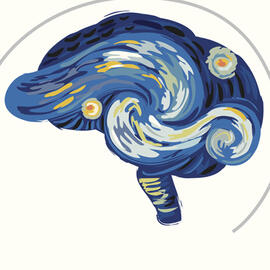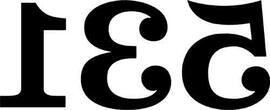
DYSCALCULIA
MADE BY SOMEONE WITH DYSCALCULIA
What is Dycalculia?
Dyscalculia is a learning disability. People with have trouble with math at many levels. They often struggle with key concepts like bigger vs. smaller. And they can have a hard time doing basic math problems and more abstract math.
Common symptoms
Not knowing which of two numbers is larger;
Understanding the magnitude and relationship of numbers;
Lacking effective counting strategies;
Poor fluency in identification of numbers;
Inability to add simple single-digit numbers mentally;
Limitations in working memory capacity;
Struggling to understand clocks, sheet musics,measure units, etc.;
Difficulty following maps and taking directions;
Bad short-term memory;
Understand math word problems;
Learn basic math, like addition, subtraction, and multiplication;
Link a number (1) to its corresponding word (one)
Understand fractions;
Understand graphs and charts (visual-spatial concepts);
Count money or make change;
Remember phone numbers or ZIP codes.
more
If I am bad at maths do I automatically have dyscalculia?
No. Struggling with maths is normal, even expected. But, dyscalculiac people struggles go beyond maths and school, affecting day-to-day tasks such as taking track of time,telling time,basic math facts, working with money, gauging speed and distance, remembering sequences of numbers, understanding quantities, measuring and visual-spatial processing and etc.
You need to identify with these- not all, but at least a quantity of them, to suspect being dyscalculiac.
next
Dyscalculiac people are not dumb (in fact, some scores extremely high in IQ tests and are skilled in many other activities),are not attention-seekers, are not less than a neurotypical person and deserve respect like anyone else and to be included in the LD/ND community.
Carrd about ADD & ADHD
Carrd about Autism&Aspergers
Thank you for reading! More info may be added in the future.
I was diagnosed with dyscalculia and ADHD when I was six years old, and I've been educating myself on the matter ever since. I am only seventeen, and I'm not a professional, but I'd like to help my fellow dyscalculia as much as I can so I will try to be as helpful as I can.
I had no idea of numbers and quantity before I joined kindergarten. None. I did not count my toys, my clothes, my teddy bears or sweets. For me, they were simply groups of things with no right quantity.
I remember my first maths class in kindergarten, the teacher had given us a quick introduction of quantities and additions. I didn't understand any of it but assumed it would be better for me to remain silent and wait, because surely I would get what she was saying later.
I didn't!
While everyone already had their answer, I just stared in the whiteboard, and nothing would come to my mind; as if me from thinking. But, as much as I tried, I could not even imagine two quantities of whatever examples they gave to me (sweets, toys, etc.) somehow ''coming together'' and forming a new one. After trying to count on my fingers, I answered the teacher with ''three''. She made me re-do the count five more times, and after answering with any numbers that came in my head.
After both me and the teacher grew frustrated, she just told me the answer was four—no further explanation.
This example sums my entire middle and high school experience. People had no patience for me, and I would be treated condescendingly by every teacher or family member I asked for help.
When I was still very young, five or six, I used to mirror my numbers like this:

Whenever I did this, my mother would erase my entire homework a dozen times and ask me to re-do it. But, when I tried to think of a number, three, for an example, I simply could not visualise it in my mind. Same with letter, numbers were something my mind could not replicate in my imagination no matter how much I tried. I couldn't explain how I wasn't able because I was too young to vocalise this level of abstract thoughts, so everyone assumed I was lying to get away from doing homework.
I was not only affected by dyscalculia in school but in almost every aspect of my life. When I was cooking, I could not figure how much water was enough to add in the pan to do pasta; I could not find the right lid of the pan because I could not see the difference in their sizes; whenever I took a break to drink water in school, I used to get lost in the corridors and have trouble finding my way back to my class because I didn't know how to take directions and see the difference between the dozen white doors in the corridors and I could not read the numbers in them.
No one ever believed me, though. The ones who did simply assumed I was e dumb and just helped me to find my class, but not how to. Which lead to me being lost almost every week. The excuse of 'I don't know where my classroom is' started to get tired of the teachers, and I was taken as a liar who wanted to skip classes.
As the years passed, I had to come up with my way of dealing with my disability, but some teachers weren't of any help. I was asked to skip subjects and ignore what my classmates were doing, even taken out of classes so I wouldn't be a bother. Now, I'm four months away of doing a critical exam so I can attempt to join a university, and I need to catch up with middle school maths I was made to skip so many years ago because the teachers only didn't w to deal with my disability.
My advice for dyscalculic people is: don't be ashamed, don't be shy to ask for help. You are so much more than a question asking you to measure a triangle or finding an X. You have many other talents that matter way more than your flaws, but ignoring them will not help. Seek alternatives and new learning/studying styles.
You will be alright!